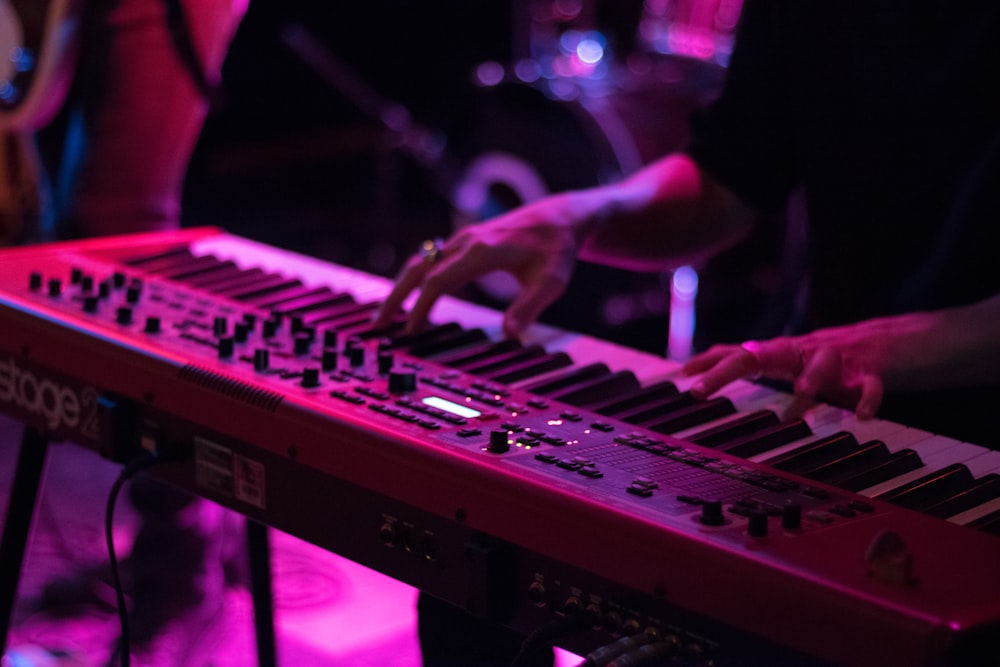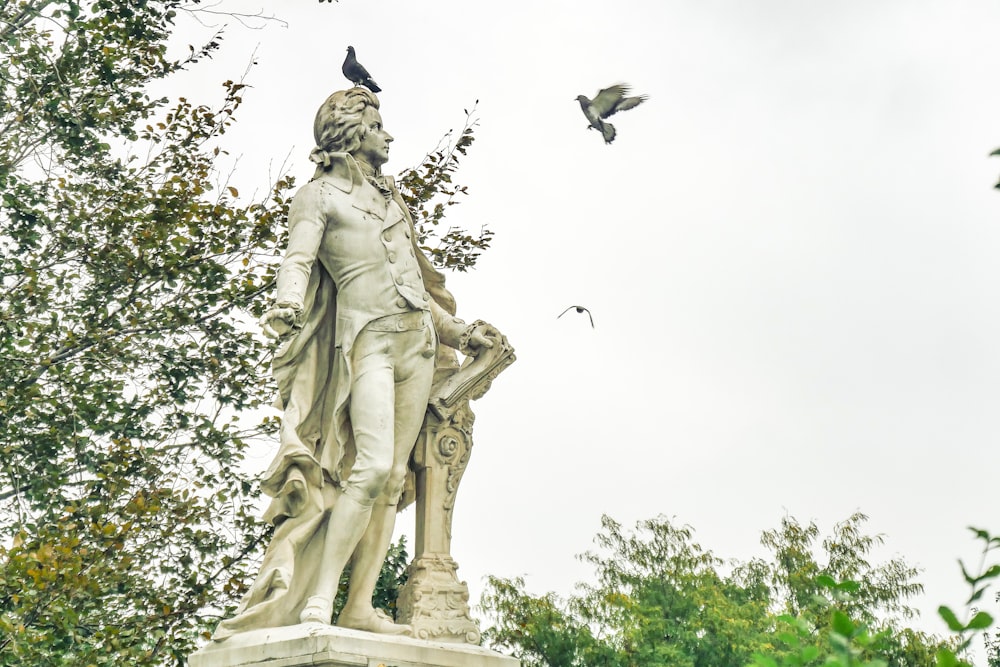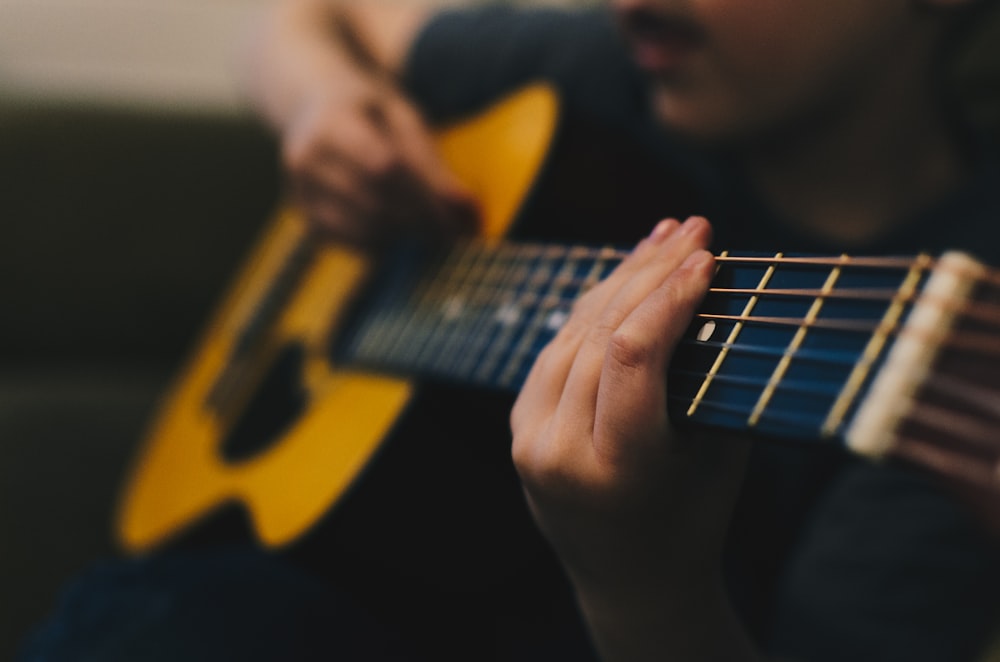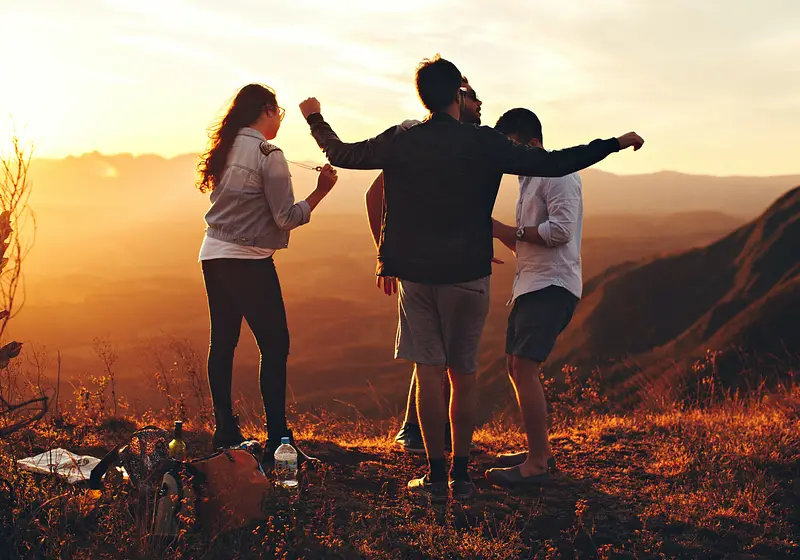Get ready to dive into captivating case studies that will leave you awestruck, from lightning's electrifying impact on musical talents to a riveting experiment that turned the world of recovery upside down.

Image Credit: Martin Hexeberg from Unsplash
Case Study #1: The Lightning-Struck Pianist
One of the most astonishing cases of music and lightning comes from the life of Roy C. Sullivan, a park ranger in the United States who holds the record for being struck by lightning not once or twice, but seven times! What's more astonishing is that after one of these lightning strikes, he suddenly developed an unusual ability—he could play the piano with extraordinary skill, despite having no prior musical training.
It's as if the lightning rewired his brain, enhancing his musical abilities. This incredible transformation captivated the imagination of both the scientific community and the general public. How could a near-death experience involving lightning lead to such a profound alteration in one's cognitive abilities, in the realm of music?
One theory suggests that the electrical current from the lightning strikes may have temporarily "rewired" Roy's brain. Lightning is known to generate extremely high-voltage electrical currents, and it's possible that the electrical surge somehow altered the neural pathways in his brain.

Image Credit: Marcela Laskoski from Unsplash
Case Study 2: Music As Anesthesia
Surgery—just the word can send shivers down your spine. The prospect of going without anesthesia is a horror story waiting to happen. But imagine this: there's a way to make it all a tad less terrifying, and it's not a script for a sci-fi movie; it's music.
Enter Dr. Daniel J. Levitin, a neuroscience wizard with a keen interest in the therapeutic powers of music.
He orchestrated a groundbreaking study that turned the surgical world on its head. What he found wasn't just fascinating; it was jaw-dropping.
In a world where anesthesia is the undisputed champion for numbing the senses, Dr. Levitin decided to bring music into the operating theater. The idea? Could your favorite tunes be the secret ingredient to lessen the need for anesthesia, or better yet, replace it?
The results of this musical experiment were nothing short of astonishing. Dr. Levitin's team selected a group of 100 patients about to undergo minor surgeries, the kind where anesthesia usually takes center stage.
But this time, there was a twist. Before the surgery, each patient was given the opportunity to listen to their preferred music. It was like a prescription pad for playlists.
What happened next was pure magic. Those who embraced their favorite tunes required, on average, a staggering 30% less anesthesia. Yes, you read that right—music was turning down the dial on anesthesia, which meant less medication coursing through their veins.
Could music offer a glimpse into the future of non-pharmacological pain management?

Image Credit: Andreas ***** from Unsplash
Case Study 3: The Mozart Effect
In the late 1990s, the "Mozart effect" became a hot topic in the world of music psychology. Dr. Frances Rauscher, a psychologist, conducted a study where she had college students listen to Mozart's music before taking an IQ test.
The outcome? Nothing short of miraculous. Those who had immersed themselves in Mozart's creations exhibited a temporary increase in spatial-temporal reasoning – the ability to visualize and manipulate objects in space and time, associated with math and problem-solving abilities.
The "Mozart Effect" had been born, and it sent shockwaves through the world of science.
The study had parents rushing to play classical music for their babies, hoping to raise mini-Einsteins. In homes, nurseries, and car rides, the sounds of Mozart's sonatas became the soundtrack of early childhood.
While the concept of turning children into mini-Einsteins through Mozart's music might not have produced child prodigies in every household, it certainly left an enduring legacy of the importance of music in early education and childhood development. The impact of music goes beyond nostalgia; it provides a soundtrack to our daily lives that can help us think more clearly and creatively.

Image Credit: Kelly Sikkema from Unsplash
Case Study 4: Henry's Musical Reawakening
Let's meet Henry, an elderly man who lived in a nursing home and had severe dementia. He was often unresponsive and withdrawn, locked in a world of fading memories.
But something extraordinary happened when he heard his favorite tunes from decades ago. His eyes lit up, his feet tapped, and his face glowed with recognition.
Then came the extraordinary moment, a heartwarming transformation that unfolded before the camera's lens. His feet, once seemingly trapped by the constraints of his frail and aging body, began to tap into a joyful rhythm. His face, previously an inscrutable mask of cognitive decline, now radiated with emotions and memories that had long seemed buried beyond reach.
Music has the power to reach deep into the recesses of our minds, even when memories are nearly extinguished. In Henry's case, music offered a pathway to his past and a bridge to his emotions. Music transcends the boundaries of time, memory, and cognition. It reminds us that, in the darkest moments, the right melody can be a lifeline to our inner worlds.
Henry's story is a profoundly moving and real-life account featured in the documentary "Alive Inside: A Story of Music and Memory," directed by Michael Rossato-Bennett.

Image Credit: Eric Nopanen from Unsplash
Case Study 5: Magic for Alzheimer's Patients
In a groundbreaking experiment, scientists introduced personalized playlists to Alzheimer's patients. The results were astonishing: these patients, who often struggle to remember their own names, could sing along with their favorite songs, recall lyrics, and display improved mood and cognition.
A study involving 30 Alzheimer's patients demonstrated that personalized music therapy led to a 60% reduction in agitation and a 35% increase in cognitive function scores. The impact of music on these patients went beyond the numbers, as it provided a profound improvement in their quality of life and emotional well-being.
The moment we crank up the volume on our favorite tunes, our brains ignite like a New Year's fireworks show. Dr. Daniel Levitin, a neuroscientist and a member of a rock band (yes, you read that right), describes music as a mental Olympics.
It's the only activity that ropes in every nook and cranny of our brain. From the auditory and motor regions to the emotional control center and the planning zone, music lights up the whole arena.

Image Credit: Guillaume de Germain from Unsplash
Case Study 6: Dance Like Nobody's Watching, Thanks to Your Brain
Ever wonder why you can't help but move when the beat drops? It's not just your inner dancer; it's science! Your brain naturally wants to synchronize with rhythms, a phenomenon called "entrainment." Dr. Aniruddh D. Patel, a cognitive neuroscientist, shows that our brains are wired to groove with rhythmic patterns.
Entrainment, a captivating neural phenomenon, involves mirror neurons firing in response to rhythmic patterns in music, the auditory cortex deciphering beat structure, and brainwaves syncing up as seen in electroencephalography (EEG). This synchronization isn't just a passive reaction; it's deeply connected to our evolutionary history. It's a symphony of brainwaves, mirror neurons, and a touch of dopamine.

Image Credit: pawel szvmanski from Unsplash
Case Study 7: Mapping the Brain's Music Response
Buckle up, because we're on the cusp of a musical brain revolution. Brain scans like fMRI are giving us backstage passes to the brain's jam session. We're watching in real-time as it reacts to music, unlocking doors to better therapy and a deeper understanding of our brain's love affair with melodies.
In a pioneering study led by Dr. Maria Rodriguez, researchers used functional magnetic resonance imaging (fMRI) to monitor the brain's response to different music genres. What they discovered was nothing short of astonishing. Different areas of the brain lit up like a star-studded concert when participants listened to jazz, classical, or rock music.
When participants listened to classical music, regions associated with creativity and problem-solving saw increased activity. Jazz music, on the other hand, lit up areas linked to improvisation and spontaneous thinking. Rock music had participants' motor and reward centers buzzing, inducing feelings of excitement.
This case study unveils a fascinating world of possibilities. The study not only deepens our understanding of the brain's connection with music but also opens doors to personalized music therapies tailored to individual needs. It's the dawn of a new era where music could be prescribed as medicine, not just for the soul, but for the mind.
Let us slide into your dms 🥰
Get notified of top trending articles like this one every week! (we won't spam you)Conclusion
Music is a mind-blowing experience. From mental gymnastics to time-traveling melodies and dance parties, music touches our brains in ways we're only beginning to unravel.
So next time you're caught in a musical daydream, remember it's your brain throwing the coolest concert ever. As Plato wisely noted, "Music gives a soul to the universe, wings to the mind, flight to the imagination, and life to everything." And the psychology of music?
It's our roadmap to unlocking this extraordinary power.









.jpg)




